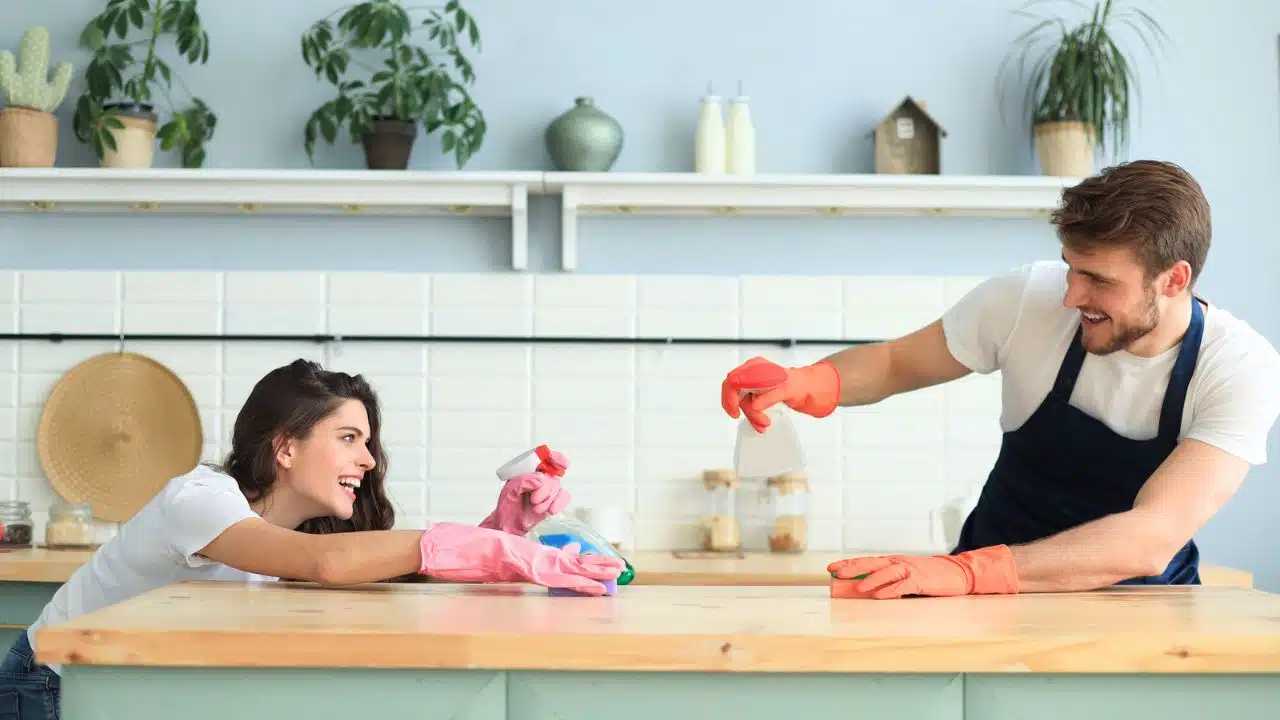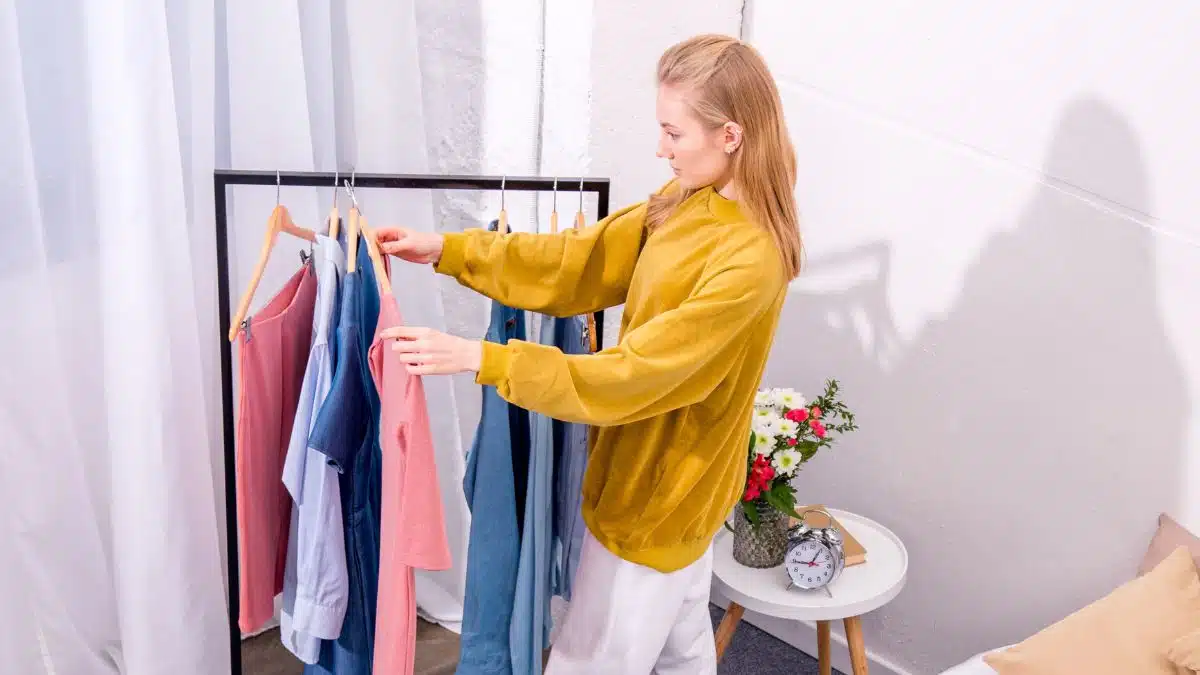Many people choose zero-waste lifestyles for their positive impact on the planet. Committing to producing less waste means lower levels of garbage in landfills and oceans and better preservation of the earth’s limited resources.
Beyond helping the planet, maintaining a zero-waste home can benefit your wallet. Here are a few easy ways to live waste-free and save money in the process.
1. Making Small Changes

A zero-waste lifestyle may feel like an all-or-nothing decision, but everyone can approach the change at their own pace. You might commit to a small monthly investment rather than stocking up on bulk containers and foods immediately. Start by purchasing a reusable water bottle, then some bulk flour. Make an effort to recycle everything you can.
If you keep this process going over time, your monthly waste will slowly taper off while you maintain a budget that suits your situation.
2. Making Your Own Supplies

Grocery store aisles often have shelves full of plastic-wrapped products, from food to cleaning supplies. Embracing a zero-waste lifestyle may mean switching from buying in-store to making supplies yourself when you can. Reuse previously purchased bottles or containers to hold your homemade solutions. You can find recipes online for frequently bought cleaning supplies and foods.
You can often save money using simple bulk ingredients like vinegar for cleaning and flour for baking. While you may pay more initially to buy a giant container of bulk goods to make your own supplies, you’ll save more in the long run while cutting down on waste.
3. Buying in Bulk

Buying products in bulk often saves money because you pay less per pound than you would by purchasing a smaller amount. This money-saving strategy also reduces packaging waste. And when you bring a reusable bag or container to carry your bulk purchases, you can avoid using plastic bags that generate more waste.
4. Meal Planning and Prepping

In the United States, we throw away billions of pounds of food waste in our homes each year. Throwing away old vegetables or moldy cheese is like tossing money in the trash. It also increases your overall garbage, leading to adverse effects on the planet.
Meal prepping and planning make it easier to buy what you need from the store each time you go without getting extra. When you have a plan for each item, you probably won’t waste it. You’ll only spend money on things you will use.
5. Growing Produce at Home

A home garden reduces spending by eliminating the need to buy fresh vegetables, fruit, or herbs at the grocery store. Plants or seeds usually come at a small initial investment. Depending on where you shop, you might spend about the same amount on a packet of seeds as one bag of fresh produce and get several pounds of vegetables for your efforts. You’ll also eliminate waste like the plastic packaging many fruits and vegetables come with.
While gardening may seem complicated, many beginners have great success with it by following the techniques of more experienced gardeners.
6. Embracing Used Items

Many people switching to a zero-waste lifestyle turn to food waste first. This component is often a significant contributor to home waste, but it’s just one place to start. Another way to lower your waste is by buying used goods. Secondhand clothes shopping has grown in popularity recently, and it can result in significant savings. You can also buy technology, tools, workout equipment and other long-lasting goods secondhand to help your wallet.
In many cases, buying secondhand also means less waste. You might get clothes without tags or a TV without the large box, plastic wrap, and other waste products that protect the item during shipping.
7. Selling Old Items

Selling is an excellent alternative to tossing, especially when you’re looking to save money through a zero-waste lifestyle. Set up a garage sale or post items online to give them a second life outside of a landfill.
You can set the money you make aside and use it to finance other waste-reducing habits, like buying reusable containers for your cleaning supplies or bulk goods.
8. Measuring What You Use

As you begin a zero-waste lifestyle, take note of all the waste you typically produce in a week or month. As you start cutting down on waste, measure your products, including cleaners and detergents. At best, overuse means you’ll have to buy the products more often. Sometimes, it can have other unexpected effects, too. For example, using too much detergent can leave clothes dirtier and cause buildup in your washing machine.
As you measure what you use, you’ll become more mindful of areas to cut down or buy less. Maybe you’ll find you’re constantly throwing away moldy bread. In the future, you can buy it less often or make small batches at home to limit waste and unnecessary spending.
9. Reusing and Repurposing Items

Your first instinct may be to toss an item once it’s served its purpose, but many products can be reused. Try repurposing items you no longer use rather than throwing them away. Old T-shirts can make excellent cleaning rags or grocery bags, and glass containers from pasta sauces are good for storing small items and craft supplies. Get creative with the waste around your house to reduce your garbage.
10. Repairing and Fixing Things

Through some simple repairs, a broken item can enjoy a second life. Refurbish a broken chair leg, sew or patch tears in clothing, and reattach broken jewelry chains to maintain their usefulness. You’ll produce less waste and save money on replacements.
Stop Wasting Money and Ruining the Planet

Zero-waste lifestyles are known for their positive environmental effects. Living life with less waste can also improve your financial situation. Incorporate some of these tips into your everyday life and see how much you’ll save.
These Items Actually Cost Less Today

Inflation is really testing our budgets lately, but it’s not all bad news. Even though prices are going up overall, some surprising things are actually getting cheaper. If you adjust your spending a little, you can take advantage of these 24 items that cost less today.
Little-Known Money-Saving Tricks

Money-saving life hacks are all over the internet, but let’s face it, many of them are just plain boring. Sure, we all know about the classic tips like cutting out your daily latte, packing your lunch, and using coupons – but let’s be real, those hacks can only get you so far. So get ready to explore some creative, unexpected, and downright genius life hacks that can help you save big.
Ava Roman
Ava is the Managing Editor of Revivalist, a women's lifestyle website where we believe authenticity is the key to living your best life.
